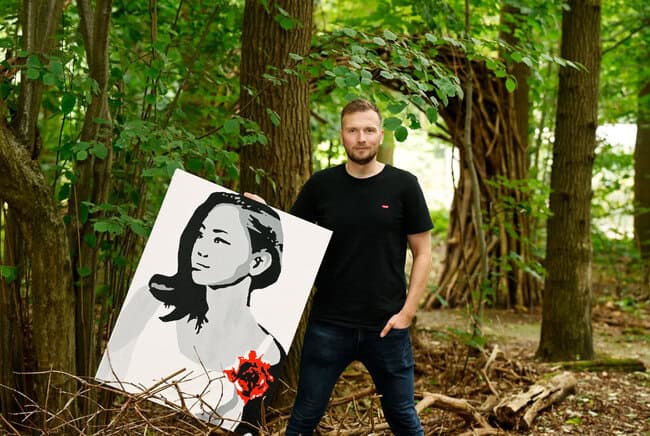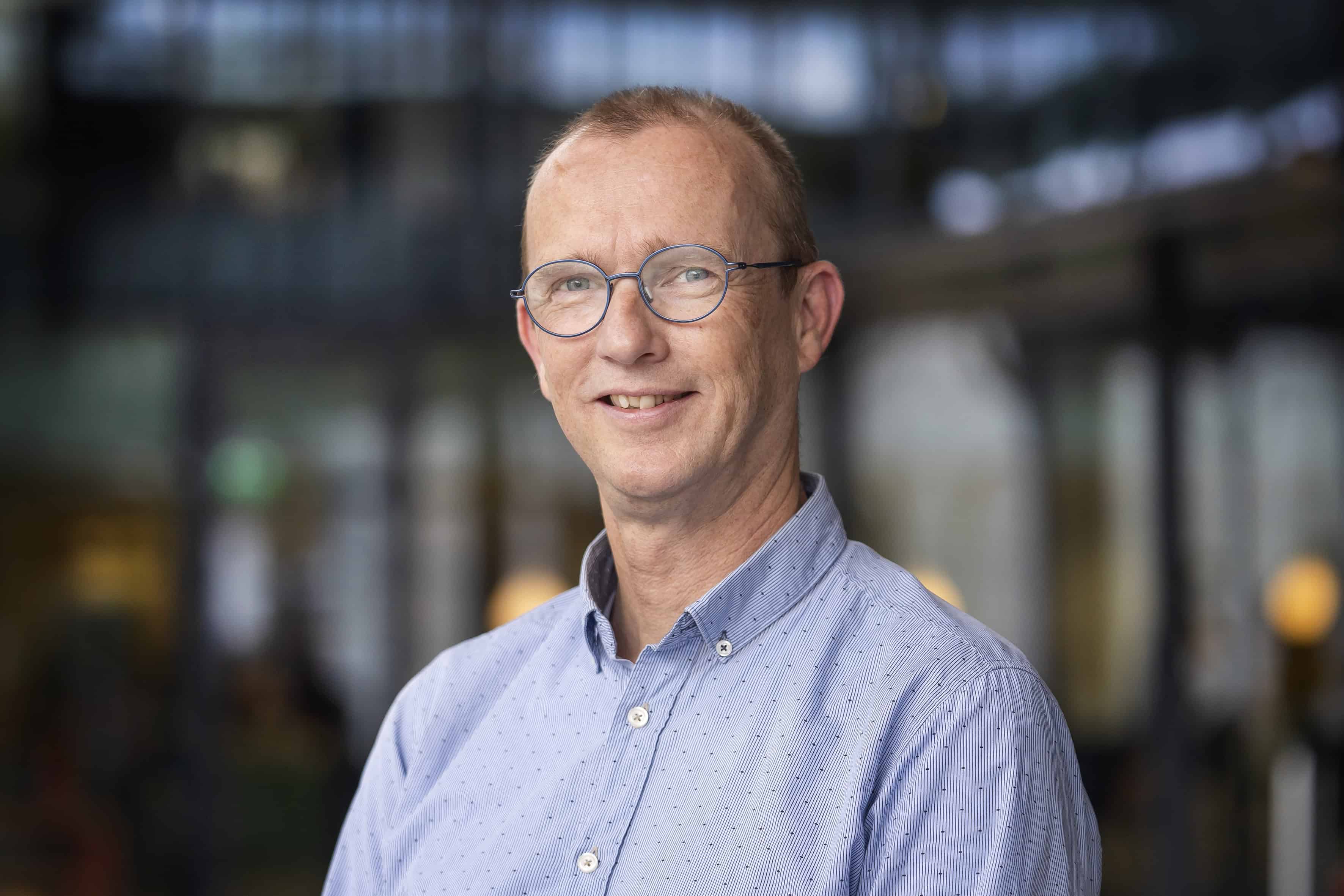
After a long day at work, lots of people want to play a game on their phone or iPad. Aimlessly move the candies in CandyCrush, relax and clear your head. That’s great, at least for some. But what if your candy combinations in the game do have a goal, for example, to help a scientist develop a vaccine against lymphoma? “Cancer is an abnormality of cells in DNA. One DNA string is made up of 2.3 billion parts. So it’s very difficult to find the possible ‘mistake’. By letting a lot of people make combinations in a playful way, scientists can collect a lot of information about the possible abnormalities,” explains Jurriaan van Rijswijk. Jurriaan is a game architect and founder of Games for Health.

“So together we can solve societal problems while having fun.” That is the motto of the company that Van Rijswijk set up ten years ago with his wife Sandra. “People are naturally motivated to play. We can use that in various ways to relieve the pressure on care”, says Van Rijswijk. The game is one of the many solutions he and his team and partners have come up with in recent years. “Many of the games we’ve created help with lifestyle interventions. Apps with a game element allow us to keep motivated people who need to change their lifestyle, for example by eating healthily”, he says.
Medi and Seintje
“It can help chronically ill people take their medication on time. Especially when things are going well, people are less concerned about it and sometimes forget the medication,” he explains. “If that happens regularly, the level of medication in the body is no longer right. Then people feel sicker again and go to the doctor. This is a waste of time for both parties because the doctor can only point out that the patient has to take the medication on time.” That is why Van Rijswijk created Medi and Seintje (“Med and Icine“) “The two naughty characters offer puzzles and games. Before you can play, you first have to scan the barcode of the medicines,” Van Rijswijk says. So the app helps the player to remind himself of the medicines.

Transformation
“These kinds of developments contribute to the renewal of care. This is necessary in order to be able to cope with the demand for care in the future. It also contributes to the shift towards a more preventive approach,” says John Paul van Heel, senior account manager for SMEs at Rabobank. The bank invests a lot in innovation, especially around healthcare. “We see that care is transforming. This development has been accelerated by the corona crisis. The need for innovation and transformation in healthcare has now become very clear,” says Van Heel.
As a result of the crisis, Games For Health has developed their Post IC diary faster. “People who have been in a coma, for example, can develop feelings of anxiety afterward. A diary about the days in the IC, written both by care personnel and visitors, can help to process this”, Van Rijswijk explains. “Normally this is always a physical notebook, but that was not allowed because of hygiene rules. Moreover, no visitors were allowed, so they could not write in it either”. Two years ago he started making a digital version of such a diary. “But now because of the corona crisis, we’ve developed it faster. It’s already being used in several hospitals.”
Potential for digitization
Van Heel sees many opportunities in the field of digitization. “Our services as a bank have also shifted in recent years from one hundred percent physical to ninety percent digital. We now want to help other parties with this shift,” he continues. In the Brainport region, companies such as Philips and knowledge institutions such as the Technische Universiteit Eindhoven and Fontys Universities of Applied Sciences are working hard on innovation in healthcare. “This ranges from medical robots to smart apps. We try to contribute to this complete development, we call it Banking for Health.” For example, Rabobank provides capital to start-ups at an early stage. “But money isn’t everything. We want to connect parties. The care innovator is often not the care provider, like a doctor. These parties do need to come together to come up with workable solutions. That’s why we open up our network,” says Van Heel.
According to Van Heel, digitization makes healthcare more efficient and cheaper. “We want to move to a world where the right care can be provided in the right place at the right time,” he says. “You can order a pizza at any time of the day via the app. But if you have a question about your health in the evening or at night, you have to wait until you can call the doctor at 8 o’clock in the morning. That’s strange,” he continues. “Based on data, we should be able to get digital answers to the most frequently asked questions anyway. For complicated issues, we can still go to the doctor. This will also reduce the pressure on, for example, emergency stations”.
Sensitive market
Van Heel indicates that healthcare is a sensitive market, after all, it’s about people’s health. “I understand that we can’t just hand over the responsibility to a game designer, that’s why the cooperation between different parties is so important”. Van Rijswijk agrees. “To change something in healthcare you have to be patient because development and testing processes take up a lot of time. Corona has also changed things here, and that seems to be easier now.”
Van Rijswijk compares the implementation of innovations in healthcare with compliance with the GDPR. “Existing law makes certain original processes impossible. But the law is not meant to make things impossible, it is meant to protect people. If something can no longer be done as it was before, you can look at new processes and solutions together with other professionals,” says van Rijswijk. “It’s a question of thinking the other way around.”
Human and machine
Both Van Heel and Van Rijswijk believe that the care system will change completely in the coming years. Van Heel: “I would love it if we could focus more on preventive care together in the coming years. Now the quality is high once people have an illness, but I think we should also use that knowledge to ensure that people don’t get sick”. Playful apps such as Medi and Seintje can help. That would relieve some of the pressure on care.
According to Van Rijswijk, if people do fall ill, there must also be a different approach than we are used to now. “Doctors are often forced to adhere to protocols. But what makes a doctor special is that he can argue that he may deviate from those protocols,” says Van Rijswijk. “Technology is often much better in protocol-based work. Then the doctor can focus on the more difficult and personalized issues. If man and machine work together, they both become smarter as a result.”








